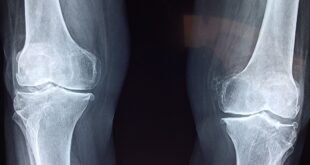Liver abscess is a rare disease of the liver. It is a mass of pus from an intraabdominal infection or a liver injury. Anyone can have it. Sometimes, cases of this condition are amoebic or pyogenic.

A small percentage is from fungal and parasitic infections. Liver abscess is from the infection in nearby structures. The bile-draining tubes or more distant body parts can cause infections in the liver. This infection can be debilitating and even fatal.
The liver helps break down the food you eat into energy. Moreover, this digestive organ creates hormones and detoxifies your blood. Your liver must stay healthy. Certainly, this will allow the liver to perform its tasks.
Diagnosis of Liver Abscess
The diagnosis of liver abscess starts with positive bacterial cultures in the blood. An elevation of white blood cells and alkaline phosphatase in the blood is significant. This will show the presence of infection and damage. In addition, it will determine the type of antibiotic the patient needs. CT scan, MRI, and ultrasound are imaging methods used to diagnose liver abscess.
An ultrasound- or CT scan-guided surgical or percutaneous drainage may confirm liver abscess. An abdominal ultrasound can locate the abscess in the liver. After that, the doctor can also use an injected dye or intravenous contrast and a CT scan. A pyogenic liver abscess may look like a growth with fluid or gas in it.
The Causes
Infections in the abdomen, blood, and gastrointestinal system may cause liver abscess. Similarly, trauma to the liver or a surgical injury to the liver may cause this condition. Infection in the bloodstream can travel to the liver and form a cyst. An infection from entamoeba histolytica can cause this disease as well.
The Risk Factors
For a pyogenic liver abscess, risk factors are diabetes and current abdominal infection. Patients who had a recent endoscopy of abdominal surgery are also at risk. For amoebic liver abscess, risk factors include alcoholism and compromised immune system. Traveling to areas with frequent cases of amoebic infections is also a factor.
Reducing a person’s risk of having liver abscess is possible by not traveling to places with many cases of amoebic infections. Avoiding unclean water or food is also helpful. If travel is unavoidable, drinking boiled or bottled water is a good practice. Getting food from a trusted food provider will also help.
The Warning Symptoms
Liver abscess is not harmful or fatal if it is intact. It becomes dangerous if it somehow opens up and spreads. The rupture of the abscess can happen all of a sudden. Visit your health care provider if any or a combination of these symptoms appears. Sometimes, the symptoms may be severe.
- Diarrhea
- Pain the upper right region of the abdomen
- Cough
- Clay-colored stool
- Chills or fever
- Dark urine
- Weakness
- Joint pain
- Appetite loss
- Sweating
- Nausea (with or without vomiting)
- Jaundice or yellowing of the whites of the eyes or skin
- Puzzling weight loss
- Chest pain because of pleuritis
The Serious Symptoms

Serious symptoms will require you to seek urgent medical care. Delusions, hallucinations, and lethargy are warning signs. These often come with a high fever and lethargy. Jerky movements and severe pain are also danger signs. Without treatment, this type of abscess can cause sepsis.
The Treatment
The primary treatment of choice for liver abscess consists of surgical drainage and medications. A patient with amoebic liver abscess after a liver infection will need another drug. The intestines must be free of the remaining amoeba to prevent the recurrence of this condition. Surgery of the abscess will drain the abscess. The surgeon will insert a small tube or needle through the patient’s abdomen. This is called percutaneous or laparoscopic drainage and aspiration.
Oral antibiotics will also target the abscess. The antibiotic choices will depend on the seriousness of the liver infection. It depends on the nature of the infective organism. The patient must finish the course of antibiotics to remove the remaining infection.
The Complications
Liver abscess can become a life-threatening condition in some instances. Minimizing the risk of developing complications is possible. Following a set treatment plan can make this happen, for instance. Some of the complications are:
- Sepsis
- Empyema or the accumulation of pus in the chest
- Pleural effusion or the collection of fluid around the lungs
- Endocarditis or the inflammation of the heart valves and heart lining
- Liver failure
Understanding Liver Abscess Can Prevent It From Worsening
Liver abscess can become life-threatening if you do not receive immediate treatment. Watching out for liver abscess symptoms can help alert your doctor of a possible liver issue. Early detection always leads to early treatment. This will result in a positive prognosis.


